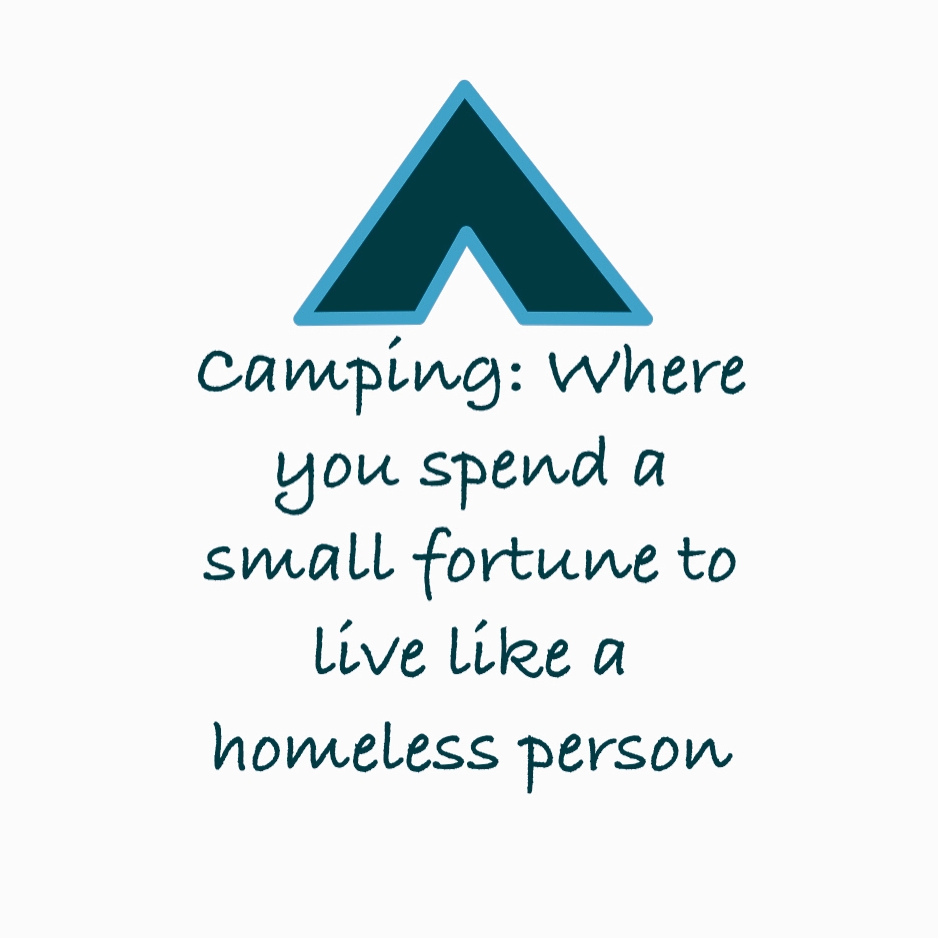Camping Basics
camping
I think that it would be safe to say that while almost everyone knows what camping is, not everyone has the same vision for how to do it. It is not uncommon when someone says "I'm going camping this weekend" to really mean "I'm going to stay in my trailer or RV where I can have plumbing and climate control, but it is at a campsite so I can call it camping." I would claim that this isn't truly camping though, not when you're stuck inside a big box you drive around.
To me, part of what makes camping, camping is the vulnerability of facing the natural world. Sure you may have a tent or other sort of shelter, but there is still exposure to the elements. I believe that this is what allows us to connect with nature and heed the call of the mountains.
Although camping can be a lot of fun, there is a lot of work which has to be done before you can go out and enjoy yourself. In this and future articles, I hope to break down the basics of everything you need to know in order to have a great time hanging out in the wild. Like everything else, you need to make the necessary preparations to avoid any unforeseen tragedies. These "tragedies" include but are not limited to:
- not having enough food or water
- forgetting to reserve a campsite
- forgetting some piece of equipment
- tent, sleeping bag, etc.
- not having an extra change of clothes for extenuating circumstances
- fall in the river; rainstorm decides that today is a convenient time to roll in and soak you
- running out of gas/fuel (for your car or stove)
- getting lost
- some sort of injury or sickness
What I am getting at is that there are lots of things that could go wrong, and I have experienced almost every one of these at some time. As you embark on different adventures, there is a good chance that at least one thing will go wrong on every single campout so you may as well know how to deal with it. Here are a few things that I like to do to avoid mishaps and address them as they occur.
Make a packing list #
Just like Santa, you should be making a list and checking it twice for everything that you need to bring. This is probably one of the best tips I can give for making sure that you don't forget anything important. I still do this every time I go on a trip (or even just out the door) and it has saved me a lot of grief. I don't always use a physical list, but I always go through a mental checklist at least once because of how awful forgetting something is. Recently I did not go through a thorough list before heading out on an adventure which led me to not bringing enough clothes and forgetting my toothbrush! These aren't too serious to forget, but they do make things less comfortable.
Make a to-do list #
If you can't tell, I'm a big fan of lists! I'd also recommend creating a list of things to do before going on your trip. Have you made all the necessary reservations, gone shopping, fueled up your car, checked if all your equipment is still functional, and restocked your first aid kit among other things? These are especially crucial things to do at the beginning of your camping season. Forgetting to buy even just one ingredient for a dish can throw off the groove of your whole trip!
Bring more than you think you'll need #
While this isn't a hard and fast rule for everything, it is a good guideline to follow, especially if weight and space aren't huge concerns. I'd suggest at least bringing some extra food and a set of extra clothes. Not having enough food or dry clothes can ruin a camping trip faster than almost anything else, so preventative measures are strongly recommended.
Don't stress #
I know that this is easier said than done, especially after giving you a list of things that you should definitely do, but to me, the most important part of any trip into the outdoors is to relax and have fun. Even with everything that should be done before a trip, it shouldn't be the cause of any more gray hairs. Remember that the purpose of recreation is to take a break from the stresses of everyday life. At the end of a trip if you've accomplished that it means that your expedition was a success! And even if something (or several things) goes wrong, don't get down on yourself too much. If everything went exactly according to plan, how much of an adventure would it actually be anyway? Sometimes you just have to roll with the punches and keep a good attitude. Smile at misfortune and have a good time out there!
 Backcountry Basics
Backcountry Basics